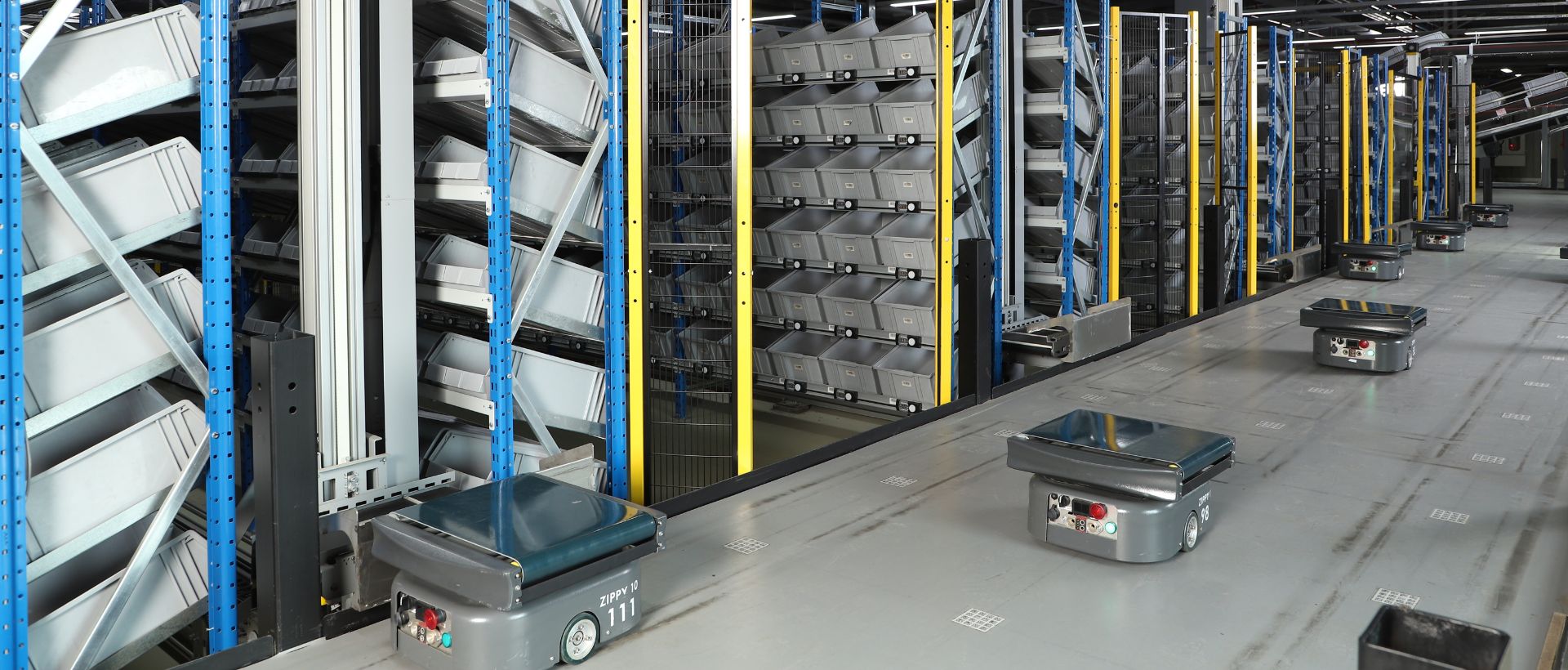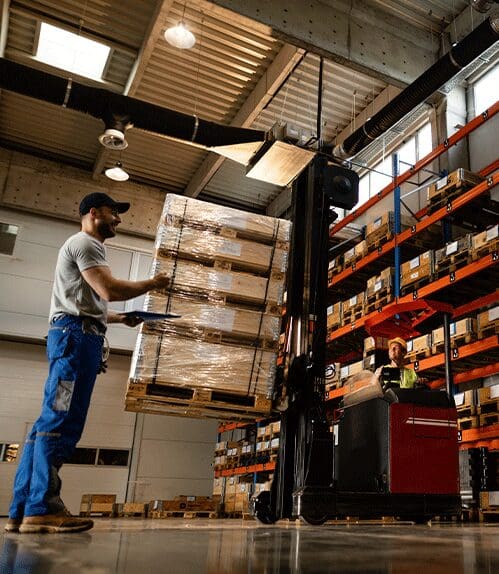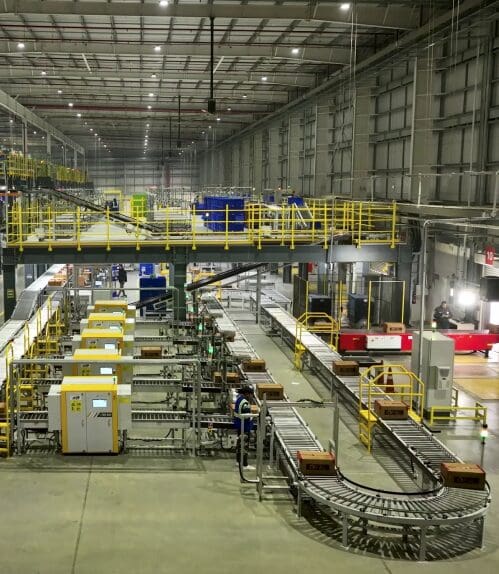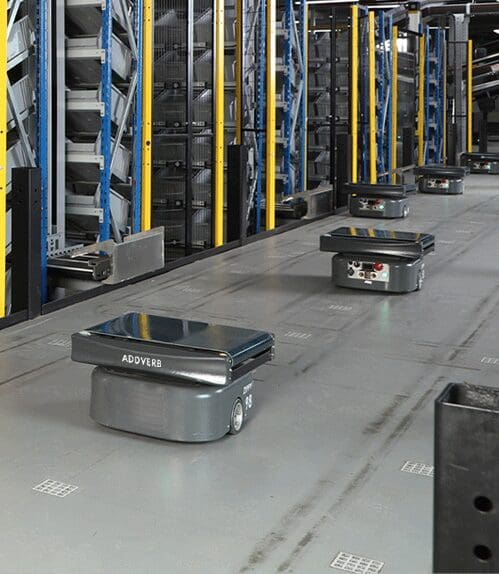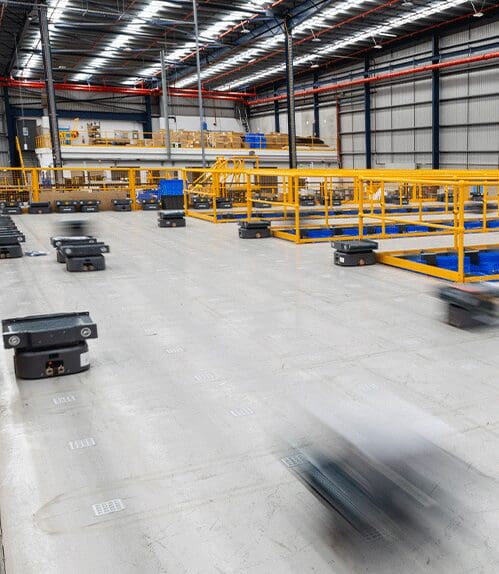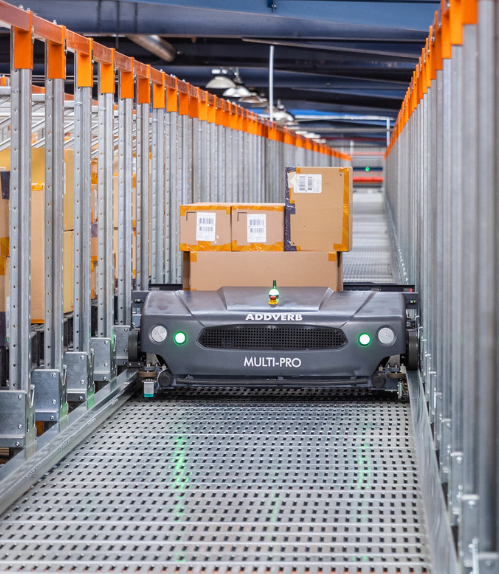Table of Contents
Micro-Fulfillment Market size was valued at USD 5.16 billion in 2023 and is anticipated to grow at a CAGR of over 34% between 2024 and 2032, driven by increasing consumer demand for faster and more efficient delivery solutions.
Companies must establish a competitive advantage to succeed in today’s rapidly changing business landscape. Adopting micro fulfilment centres can offer an effective solution for retailers grappling with the challenges posed by the rise of e-commerce. These micro fulfilment centres provide a strategic approach to meet the demands of the evolving e-commerce era.
With the advent of the coronavirus, e-commerce business has skyrocketed, and undeniably, there is no looking back! From bread makers to stationery, computers to groceries, consumers have become dependent on e-commerce for everything.
These days, consumers want to wait for as little time as possible right after they click the “Buy Now” button. The shift from traditional brick-and-mortar shopping to digital transactions has been significant, with a growing number of consumers embracing online purchases across diverse product categories. As this demand continues to rise, the need for expanded fulfilment capacities becomes inevitable, presenting a unique set of challenges in the process.
What is Micro-Fulfilment?
Micro Fulfilment is a plan of action that allocates small-scale warehouse facilities in highly populated metropolitan locations near consumers to streamline delivery times.
Delivery within or less than two days has become a common practice in the past few years. If you are a retailer other than Walmart or Amazon, it can get challenging to maintain the pace. In various large cities, the time has been reduced to same-day delivery.
Micro fulfilment aims to strategically position inventory and fulfilment centres in close proximity to consumers, enabling smaller retailers to compete effectively in terms of shipping time. Unlike large regional distribution centres, micro-fulfilment offers a more cost-effective solution for achieving two-day or faster delivery times, both in terms of shipping costs and infrastructure requirements. By adopting micro-fulfilment, the delivery process becomes shorter and more cost-efficient, benefiting both retailers and consumers.
What is a Micro-Fulfilment Centre?
A Micro Fulfilment Centre (MFC) is a small-scale or highly automated storage facility used by e-commerce businesses for storing their inventory closest to the end consumer so that the cost and delivery time can be reduced.
ALSO READ: Micro Fulfilment Centres: Do You Need Micro Warehousing?
Micro Fulfilment Centre VS Traditional Warehousing
Apart from their end goal, micro fulfilment centres and conventional, large-scale warehouses are drastically different in terms of their size. Consequently, they both offer a unique set of benefits for businesses.
Micro Fulfilment Centres
Not more than 10,000 square feet, the micro fulfilment centres runs on a smaller scale. They are typically placed in an existing warehouse or store to not impact regular operations. Due to their limited capacity, they can only contain about 24-48 hours’ worth of inventory and call for regular restocking. These micro fulfilment centres are not meant for storing items on a long-term basis but are designed to have products ready to pick, pack, and ship as soon as the order is received.
Larger Fulfilment Centres
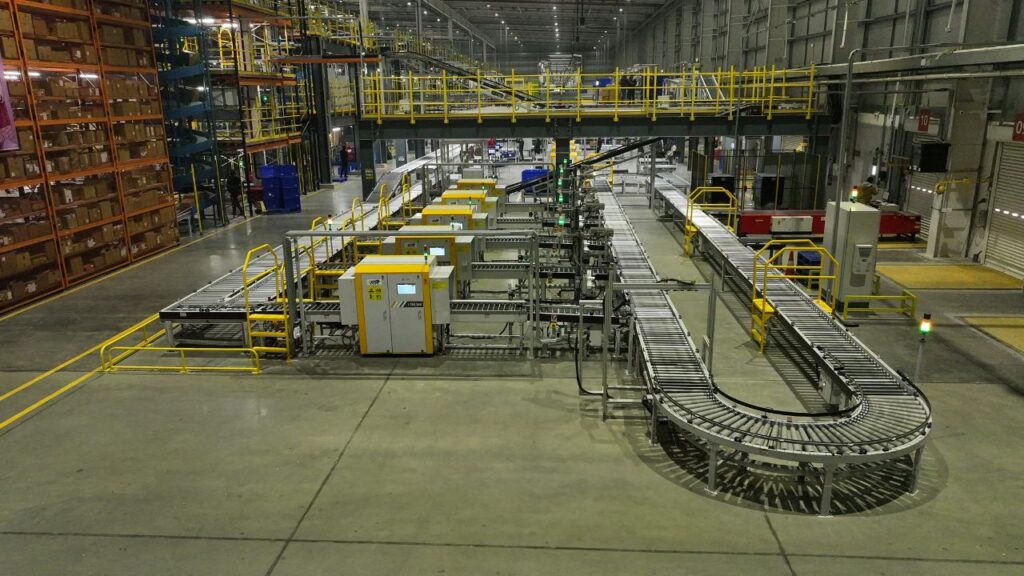
Falling in the range of 30,000 square feet, these fulfilment centres can be way larger depending upon the scope of operations. For instance, Nike and Amazon both have considerable fulfilment centres in Tennessee. Nike’s distribution centre is about 2.8 million square feet and Amazon’s fulfilment centre is around 3.6 million square feet.
Larger fulfilment centres have ample room to store enormous amounts of inventory, which may last for many months of operations and may not require replenishment as often.
Micro Fulfilment Centres: Solution for a Variety of Operations
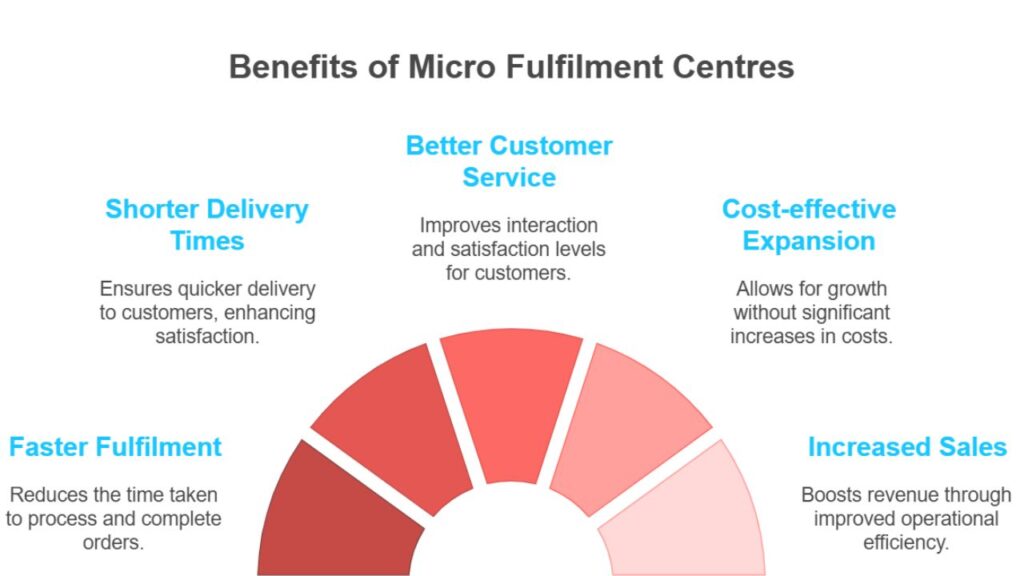
Faster order Fulfilment
As suggested above, most micro fulfilment centres are automated. This considerably accelerates the process of order fulfilment, making sure orders are delivered shortly after they are received.
Shorter Delivery Times
Micro fulfilment centres are strategically located near end consumers, which means orders can be delivered quickly since they must travel for a lesser time. Additionally, since products have to move across fewer shipping zones, the cost of shipping becomes less which enables businesses to offer their customers affordable and fast delivery experiences.
Better customer service
Thanks to faster deliveries, businesses can improve the customer experience by utilising micro fulfilment centres. Moreover, the strategic placement of fulfilment centres allows refunds, returns, and exchanges to be carried out faster, which enhances customer satisfaction.
Cost-effective expansion
Setting up giant fulfilment centres can be expensive. Small businesses do not have the resources or budget to have a storage facility of such a scale. With micro fulfilment centres, businesses can provide faster fulfilment experiences without the need for making hefty investments. Although there might be some restrictions in terms of capacity, using micro fulfilment centres can make it convenient for brands to scale their operations.
Increased sales
By facilitating fast yet affordable shipping through a micro fulfilment centre, you are overcoming some of the most common barriers when it comes to fulfilling consumer requirements: expensive shipping costs, and slow shipping speeds.
How Addverb Can Streamline Your Fulfilment Challenges
Partnering with Addverb can be a smart way to overcome the major fulfilment challenges that you may go through – whether you are a growing brand or a small-scale business. With a strategic network of fulfilment centres and robust technology, Addverb helps you solve your fulfilment problems.
Manage Your Operations the Smarter Way
Addverb can provide businesses with integrated automated technology to accelerate last-mile delivery and order fulfillment – such as pallets, autonomous mobile robots, and shuttles for picking orders. Automation improves efficiency and removes various repetitive, labor-intensive, and manual activities.
Managing inventory has become a substantial challenge for many e-commerce businesses, especially if they carry many SKUs. It can be strenuous to track how your inventory is moving, how much is remaining, or when replenishment is required. Warehouse automation software brings together networks of MFCs and operation systems to ensure real-time order management, making it possible to deliver thousands of orders each day.
Hence, if you are planning to operate your own micro fulfilment centre and looking for a powerful warehouse management system to augment your processes and workflows, Addverb can be the right solution for you. Our advanced line of solutions can enhance your fulfilment with features like order management, sorting, storing, pack & pick, and reverse logistics processes and more.
Our innovative intralogistics solutions and end-to-end warehouse automation can help optimise your unique warehouse operations. If this sounds like the solution or innovation your space requires, connect with Addverb and learn more.

FAQ
What are Micro Fulfilment Centres (MFCs)?
MFCs are small, strategically located warehouses designed to process online orders quickly and efficiently, typically serving a localized customer base.
How do MFCs differ from traditional warehouses?
Unlike traditional warehouses, MFCs are smaller in size, closer to customers, and optimized for speed, often leveraging automation and robotics for quick order fulfillment.
Why are MFCs important for e-commerce?
MFCs enable faster delivery times, reduce transportation costs, and improve inventory management, aligning with the growing demand for same-day or next-day delivery.
What technologies are commonly used in MFCs?
Technologies like Autonomous Mobile Robots (AMRs), Automated Storage and Retrieval Systems (ASRS), robotic sorters, and advanced Warehouse Management Systems (WMS) are integral to MFC operations.
What types of businesses benefit most from MFCs?
Businesses in fast-moving sectors like groceries, pharmaceuticals, and fashion, where speed and proximity to customers are crucial, gain the most from MFCs.
